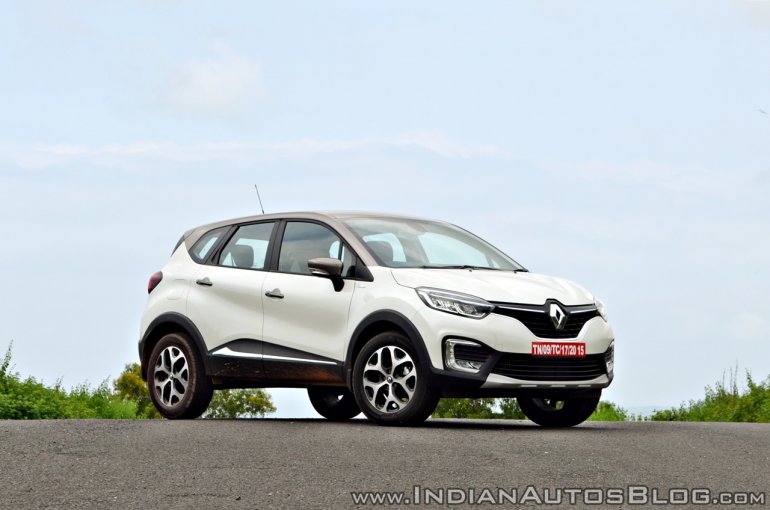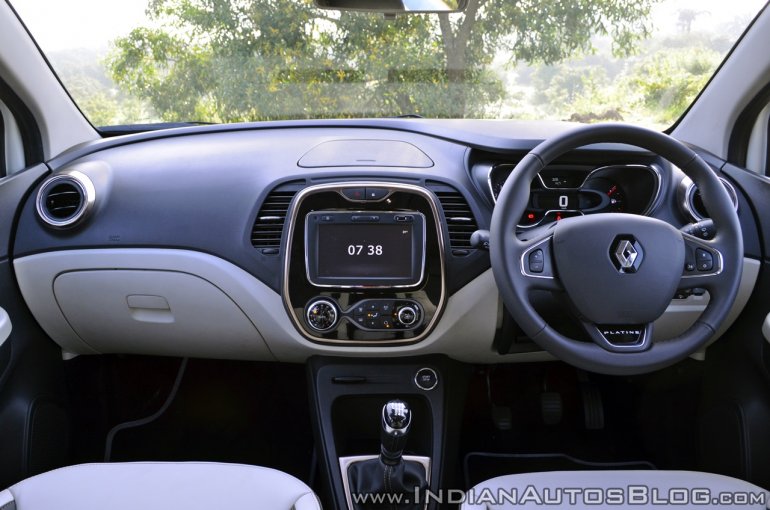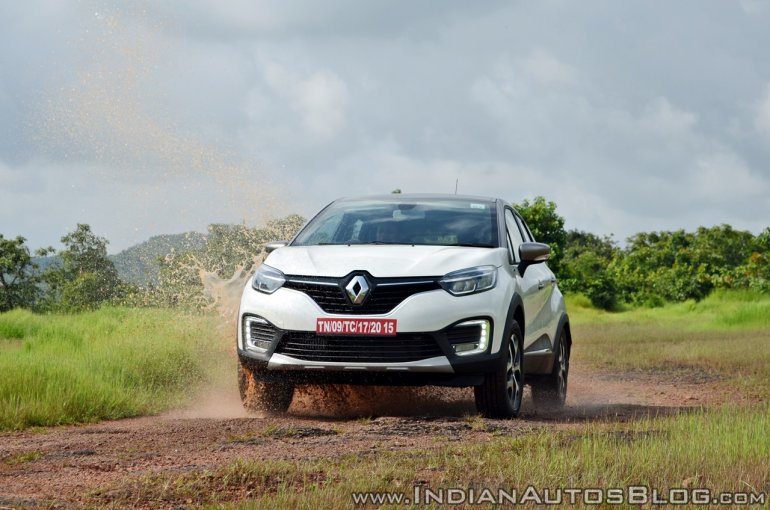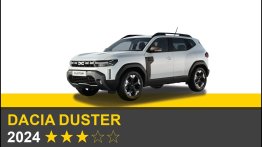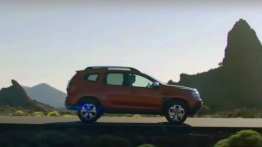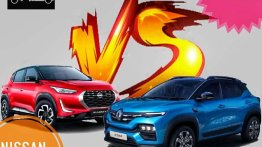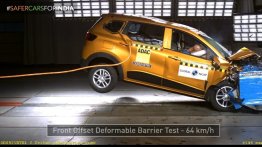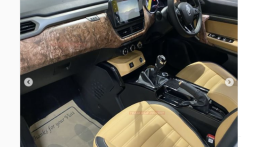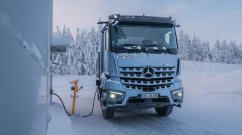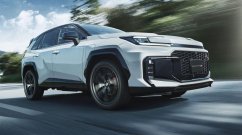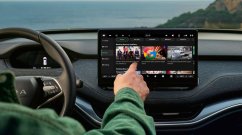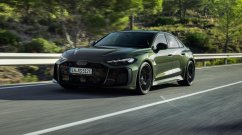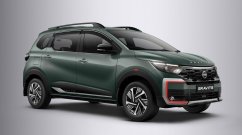Overview
As it stands, Renault is the seventh largest car maker in India in terms of sales, a feat it has managed to achieve with just three models in its portfolio. However, not one to rest on its laurels, the company is gearing up to expand its share of the ever increasing Indian car market pie and the product burdened with that responsibility is the new Renault Captur (pronounced as ‘Capture’).
Renault has made it very clear that it will be looking for volumes from the future products for India. So, is the Renault Captur up for the task? Will it be able to cash in on the rising demand for SUVs? We headed to Goa seeking answers to those questions, which we will share with you in our Renault Captur test drive review here.
What does it look like?
The exterior design of the Captur does not conform to the boxy lines characteristic of most SUVs. Instead, Renault’s design team has opted for a more crossover-ish approach coupled with regular SUV traits like a high-riding stance and chunky wheel arches. It is nearly identical to the Euro-spec Captur in terms of the way it looks. However, at 4,329 mm long, 1,813 mm wide and 1,619 mm tall, it is considerably bigger than its namesake.
The front end has plenty of oomph thanks to bits like the stylish headlamps that feature LED lighting and very upmarket floating turn indicators along with C-shape Sapphire LED DRLs placed in the bumper. The large insignia housed in a gloss black grille ensure the Captur is instantly recognizable as a Renault. In comparison, the rear end looks a wee bit bland. Although the ripple effect LED tail lamp signature does add to the overall premium appeal of the Renault Captur.
The Renault Captur rides on 17-inch Crystal cut alloys. There is a tasteful sprinkling of chrome all around including the grille, door sill and rear bumper and bootlid. Also, the way the car pulls of the dual tone look is rather commendable. Renault says the Captur was designed keeping a dual tone exterior treatment in mind. Customers will get a choice of multiple customization options at the time of purchase to enable them to create a unique identity for their car.
What’s it like on the inside?
Maybe it's the high standards set by the gorgeous exterior or maybe it's about personal preferences, but the interior of the Renault Captur just doesn’t impress as much as the exterior. Don’t get us wrong, though. It is still a pleasant place to be in. It offers ample space for 4-5 occupants and the 392 litre boot is enough to swallow quite a bit of luggage.
Finished in a light and dark colour combination, the dashboard gets a gloss black centre console along with golden finish surrounds. Renault’s familiar 7-inch MediaNAV unit takes centre stage accompanied by the auto aircon controls a la Duster. So is the steering wheel, but in this case, it bears a “Platine” badge signifying that this is the fully loaded top end trim. Perhaps the most eye-catching bit in the cabin is the “Infinity” instrument console with its chrome lined ‘Infinity’ motif and digital speedo.
Practicality isn’t the Renault Captur’s cabin’s forte. Much of the glovebox is rendered useless by the fuse box placement. The front centre armrest isn’t adjustable and does not open up either. Also, the door pockets do not offer enough in terms of volume. However, you do get a nifty storage space on top of the centre console that can gobble up a phone, wallet and other knick-knacks.
Renault is offering the top of the line Captur with black-white leatherette seats with a very upmarket looking quilted pattern, four airbags, LED interior lighting. It also gets keyless entry accompanied by a unique looking car shaped smart key, which gets a dedicated slot right next to the start/stop button. While there is a touchscreen AVN present, it does not offer any form of smartphone integration, which seems like a glaring omission in this day and age.
What’s under the hood?
Apart from lending its platform, the Duster also lends the Captur its 1.5 L H4K petrol and 1.5 L K9K diesel engines mated to 5-speed manual and 6-speed automatic transmissions respectively. We got behind the wheel of the diesel variant of the Renault Captur that delivers 110 PS at 4,000 rpm and 240 Nm at 1,750 rpm.
What’s immediately apparent is the higher refinement level as compared to the Duster. The NVH levels are kept under check and the engine does not get loud unless revved hard. There is no escaping the turbo lag, which lasts until 1,800 rpm, but post that things take a turn for the better. The Renault Captur pulls forward with aplomb as the engine gains access to the full quota of torque. The slick shifting gearbox offers a sixth cog that enables the Renault Captur to cruise at triple digit speeds with the engine relaxing at around 2,000 rpm.
Renault has hinted that automatic transmission options will join the lineup later. The company has ruled out the possibility of an AMT gearbox, though. There is no AWD system on offer either, but not many will be disappointed by its exclusion as most buyers would’ve opted for the 2WD variants anyway.
What’s it like to drive?
The Renault Captur’s on-road mannerisms are very Duster-like and that is no bad thing. In fact, that makes it one of the sweeter handling SUVs in its class. It corners with confidence and although there is a noticeable amount of body roll, it is rather well contained keeping its 210 mm ride height in mind. Ample feedback from the steering and its well-weighted nature add to the joy of driving the Renault Captur.
The Captur’s ride quality is one of the best, if not the best, amongst its rivals. Rough patches and potholes are dealt with great quality and only the sharpest of bumps filter into the cabin. Thanks to the high seating position, the Captur offers the driver a commanding view of the road ahead. The front seats are comfortable and shouldn’t cause any sort of physical discomfort even over long journeys. Space in the rear is just about sufficient. Taller passengers may find their head a little too close to the roof lining for comfort.
Should you buy one?
If you loved the Duster for its ride and handling, but yearned for a more premium package then the Renault Captur is just the SUV for you. The only wrinkles in an otherwise very well-rounded package are the sub-par interior quality and the lack of an automatic gearbox. However, look past that, and you get an SUV with a strong diesel engine, commendable ride and handling characteristics, premium features, and a gorgeous exterior.
It goes without saying that the price of the Renault Captur will dictate the car’s fate in the market. Will it emulate the success of the Duster? Difficult to say since the Duster basically enjoyed a free run until the arrival of the Hyundai Creta and the Maruti S-Cross. However, despite the strong competition, the Renault Captur, if priced right, has the potential clock healthy sales figures. This new SUV is worth a visit to a Renault dealership near you.
Renault Captur test drive review - Specifications
| Specification | Renault Captur Petrol | Renault Captur Diesel |
| Engine | 1,498 cc H4K | 1,461 cc K9K |
| Power | 106 PS @ 5600 RPM | 110 PS @ 4000 RPM |
| Torque | 142 Nm @ 4000 RPM | 240 Nm @ 1750 RPM |
| Transmission | 5-speed Manual | 6-speed Manual |
| Mileage | -NA- | -NA- |
| Length x Width x Height | 4,329 x 1,813 x 1,619 mm | |
| Wheelbase | 2,673 mm | |
| Tyre Size | 215/60 R17 Alloy Wheels | |
| Front Suspension | Mac Pherson strut with Lower Transverse link,coil spring | |
| Rear Suspension | Twist beam suspension with coil spring Twin tube Telescopic shock absorber | |
| Boot Space | 392L expandable to 1352 Litres | |
| Ground Clearance | 210 mm | |
| Fuel Tank | 50 L | |

